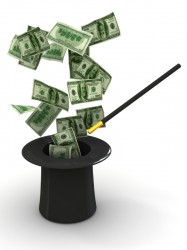This article from eaglefordtexas.com has some interesting information on the Utica and Marcellus shales. It’s short and data-dense, so it’s not worth trying to summarize here. Read it.
Monthly Archives: December 2015
Forced Pooling Legislation is Back on the Menu
The West Virginia Legislature will consider passing forced pooling legislation during the 2016 session. This will be the sixth time that they’ve considered it. The legislation has been defeated five times in five years. Each defeat has led to improvements in the legislation. This year, backers of the legislation say that it has only changed slightly from last year’s version. They think that the legislation from last year was pretty good and are willing to push it as is.
Opponents to forced pooling oppose it on principle. They say that it’s not right to force a property owner to do any particular thing with their property unless they want to. We agree. We’re not fans of eminent domain either, for the same reason. If the government or a company or a private citizen or a group of private citizens wants to use someone’s property, they should either work out an agreement for that property with the owner or find another piece of property to use. We know there are counter-arguments, but we don’t think they trump the right of a property owner to control their property.
Looking forward to a fun legislative session.
Saudis Already Cutting Back on Spending
 Karma is coming back to bite the Saudis in the butt. The Saudis are cutting back their budget in 2016. Their budget deficit is being reduced, but at the expense of spending, not because their income is increasing. The reduction in spending is going to make the lower classes unhappy, and give the political opposition to the Saudi royal family something to work with. Things won’t come to a head in 2016, because there just won’t be enough unrest in Saudi Arabia, but if things keep going this way it will come to a head eventually. It’s going to be an interesting show to watch.
Karma is coming back to bite the Saudis in the butt. The Saudis are cutting back their budget in 2016. Their budget deficit is being reduced, but at the expense of spending, not because their income is increasing. The reduction in spending is going to make the lower classes unhappy, and give the political opposition to the Saudi royal family something to work with. Things won’t come to a head in 2016, because there just won’t be enough unrest in Saudi Arabia, but if things keep going this way it will come to a head eventually. It’s going to be an interesting show to watch.
A New Cracker Plant! …..In Louisiana.
Axiall Corporation is building a cracker plant in Louisiana. It’s expected to open for business in 2019, so sometime between three and four years from now. That is, of course, if there are no construction delays or Hurricane Katrinas or any other such thing. This is great news! The cracker plant will process natural gas from the Marcellus/Utica plays
While we would prefer to see the cracker plant in Parkersburg, WV get built (and we now wonder why it’s not, seeing as how one can get funded and built over a thousand miles away from the Marcellus/Utica Play) we are excited that there will be a destination for ethane gas.
Of course, we badly need some pipelines heading out of this area. Gas is trading a $0.59/MCF at Dominion South today. That’s $1.30 less than the Henry Hub.
Shale Gas is Great for the Economy
We’ve mentioned before that the abundance of shale gas is good for industry, as natural gas is a major source of energy for industry. We went looking for an article that shows just how good shale gas is for industry, and found several that are right on point.
Sterling Burnett, writing for the Heartland, explains how chemical plant construction is coming back to the U.S. because of cheap natural gas. Steve Goldstein over at MarketWatch says that the plastics industry alone will directly generate 127,500 new jobs in the next decade. Matthew V. Veazey over at RigZone describes the kinds of jobs that will be available at LNG facilities when they are built, of which five are likely. The jobs at the facilities are not the only benefits, as shipping LNG worldwide will increase royalties and jobs in the “oil patch”.
Giles Parkinson over at CleanTechnica says that electricity rates for consumers are not going down, but they’re also not going up as much as they otherwise would. And of course, those who use natural gas to heat their homes will see direct benefits from the low cost.
Eight or Nine Cracker Plants?
It’s a big news day for West Virginia oil and gas.
Joe Eddy, President and CEO of Eagle Manufacturing out of Wellsburg, WV says that the Marcellus/Utica region could support eight or nine cracker plants right now. Come again? Why is it, then that there are only three planned, and one of those is awfully tentative?
We’d love to see a bunch of cracker plants. There’s an awful lot of gas in the ground that could be processed in cracker plants. Having that much more petrochemical feedstock would drive prices down for industry, and those savings would be passed on to consumers. It would be yet another way the fracking boom would improve our economy. We just kind of wonder how eight or nine could be possible when one of three is having a hard time getting off the ground.
Tentative Lease with Gastar on State Lands Falls Through
 Gastar Exploration entered a bid with the State of West Virginia about a year ago, and in January 2015 they were notified that they had won the bid at $3,500/acre and 20% royalty. The 20% was because that was the lowest royalty the State would entertain. We appreciate the State’s efforts to bump up royalty amounts ’round these parts, but it doesn’t seem to have worked in this case.
Gastar Exploration entered a bid with the State of West Virginia about a year ago, and in January 2015 they were notified that they had won the bid at $3,500/acre and 20% royalty. The 20% was because that was the lowest royalty the State would entertain. We appreciate the State’s efforts to bump up royalty amounts ’round these parts, but it doesn’t seem to have worked in this case.
The bid had been won, but there were still details to iron out, and Gastar and the State never got those details worked out. In the meantime, Gastar decided to sell its Marcellus and Utica acreage and focus on other areas of the United States. While that doesn’t seem like a very smart move considering the low cost of doing business in the Marcellus/Utica play, that’s what they did.
The State has decided that the bid with Gastar is no longer going to go through, and they are very likely to rescind it.
That leaves a bunch of acreage up for bid. It’s nice acreage, contiguous with one owner. Somebody’s going to jump on it, most likely Antero. It won’t go for nearly as much this time, though. It would be nice to see the State wait a couple years on it, as prices should improve in that time period.
Low Energy Prices are Good for Most Everyone
The steep drop in energy prices is a really good thing for most everybody, but a bad thing for mineral owners and those few poor lawyers who make their living helping mineral owners. We won’t cry over it, we’ll just work a little harder and a little smarter, just like all the drillers are.
Down in New Jersey, residential and small commercial customers are getting a rate reduction in their natural gas bill, and a credit back on their statements. How cool is that?! When’s the last time anybody was happy to see their gas bill?
The really awesome thing is, it’s mostly due to unprecedented output of natural gas in the Marcellus and Utica shale areas. We’re proud to be a small part of that. The other factor has been the increased production from Saudi Arabia as it tries to keep its share of the oil market and drive American oil developers into bankruptcy. Everyone can see the direct effect on prices at the gas pump.
The great news is that low energy prices are going to heat our economy back up. We think that one of the reasons the fed raised interest rates for the first time in years is because they see the economy taking off, in part to low energy prices. Low energy prices make manufacturing and petrochemical industries in the United States more competitive. It also makes it easier for transportation companies to make ends meet. It also makes it easier to take that Great American Road Trip, and more interesting to buy big gas guzzlers. It also puts a few more dollars into the wallets of every consumer. All of the above will translate into jobs and greater energy demands. It’s going to take a while, but low energy prices are going to help improve our economy, which will drive demand for energy back up, which will drive the price of energy back up.
The disappointing part of low energy prices is that it will drive down the demand for renewable energy sources. I’m no tree hugging environmentalist, but I still think renewables are cool and would like to see that industry take off.
In the meantime, we hope that people will take a look at gas prices and decide to go visit both sets of grandmas this Christmas, and turn the heat up a bit.
Ford is Again Producing a CNG F-150
Natural gas powered cars aren’t exactly popular right now, what with the lack of CNG fueling stations and all. Even in the parts of the United States where there is a higher than average density of CNG fueling stations (what’s up with Oklahoma?!), you’re going to have to think ahead a bit more about when you fill up. Here’s the CNG Now! website where you can find public CNG stations. You’ll see that there just aren’t that many of them. Part of the reason for that is that very little CNG is used to fuel vehicles. The Alternative Fuels Data Center states that 0.1 percent of all natural gas is used to run vehicles.
However, they are becoming more common.
With that in mind, Ford has stepped up it’s game and is again offering a variant of the F-150 that will run on CNG. It also runs on some other things, but we’re not terribly concerned with that here. It would be great if more vehicles ran on natural gas. Natural gas burns cleaner than gasoline and we have loads of the stuff in the ground. If you’re in a position to buy a CNG vehicle, we encourage you to do so.
Chesapeake “Loses” 1.1 Billion Barrels of Oil
 The drop in oil and natural gas prices doesn’t just affect the price of gas at the pump or your monthly utility bill. It also hits energy companies awfully hard, and not in ways you might expect. In this case, over a billion barrels of oil are going to just disappear off of Chesapeake’s books. That’s billion with a B. That’s disappear as in no longer exist.
The drop in oil and natural gas prices doesn’t just affect the price of gas at the pump or your monthly utility bill. It also hits energy companies awfully hard, and not in ways you might expect. In this case, over a billion barrels of oil are going to just disappear off of Chesapeake’s books. That’s billion with a B. That’s disappear as in no longer exist.
How does that happen?
Oil and gas companies are allowed to give a value to their wells even before drilling them and producing gas from them. They do that to get loans from banks. There’s a formula provided by the SEC (not the football conference) that they use to determine that value. The formula includes the price of oil or the price of gas, depending on which the company is expecting to produce. When the price goes down, the value of the undrilled wells goes down. It has more to do with what’s economically producible than anything, so a lot of properties that were marginally economic are no longer considered economic, and so have no value. Poof, $1.1 billion dollars in value just disappears.
Oil and gas is just crazy.


